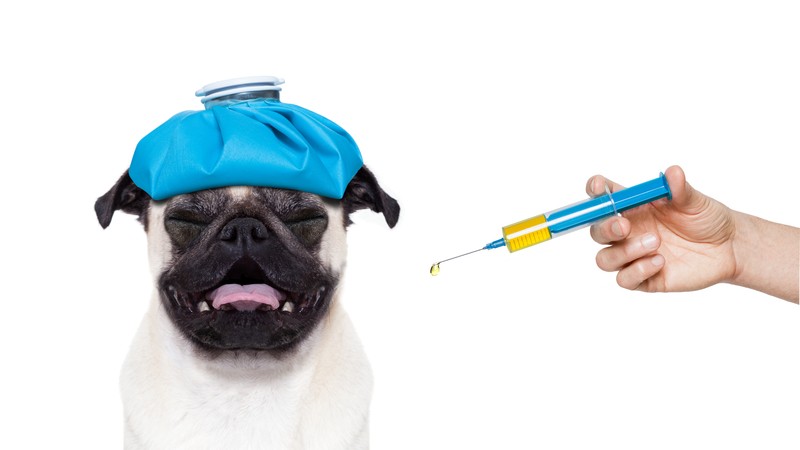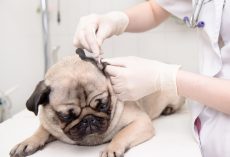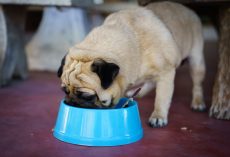There is one major side effect to watch out for in your pup after he has received a vaccine. Keep him safe and learn what you should look out for. Talk to your vet about the risks of any medications and vaccines. Your doggy will appreciate it!
Recently I ran across a sad, maddening news article discussing an increase in autoimmune disorder diagnoses by veterinarians. According to the article:
“Similar to humans, autoimmune disorders in dogs can happen suddenly. But what's different is the condition is just recently being heavily researched in dogs because they're dying from it.”
Pets With Autoimmune Disease Are Suspicious for Over-Vaccination
Since this was just a short online news article and video put together by a local television station, I really didn’t expect an in-depth analysis of the rise of autoimmune diseases in pets. However, a glaring omission in the coverage is any mention of Toby’s vaccine status.Any discussion of a diagnosed autoimmune disease in a pet should include information about vaccinations. We need to know how often the dog has been vaccinated, for what and how recently he received a vaccine(s).
Researchers Have Long Suspected a Link Between Vaccinations and Autoimmune Disease
Back in 1999, a team of researchers in the Department of Veterinary Pathobiology at Purdue University conducted a series of experimental studies to determine if vaccination of dogs affects the function of their immune system and results in autoimmune disease.“Although this does not necessarily indicate a causal relationship, it is the strongest evidence to date for vaccine-induced autoimmune disease in the dog.”
Study Revealed Significant Immune System Abnormalities in Vaccinated Dogs
The study followed a group of vaccinated and a group of unvaccinated dogs for 14 weeks after the first vaccination.The researchers discovered that the group of vaccinated dogs (but not the unvaccinated group) developed autoantibodies to several crucial, naturally-occurring biochemicals in their own bodies, including albumin, cardiolipin, collagen, cytochrome C, DNA, fibronectin and laminin.
The researchers concluded, “It is likely that genetic and environmental factors will trigger the onset of clinical autoimmune disease in a small percentage of the animals that develop autoantibodies.”
Fact: Too Many Dogs Are Receiving Too Many Vaccinations
A revved-up (overly-stimulated) immune system, which is both the goal and result of vaccines, can set the stage for disorders in which the immune system mistakes the body’s own organs for foreign invaders, and attacks them. Autoimmune diseases can affect a wide variety of tissues in the body, including blood, joints and muscles, nervous system, thyroid, adrenal glands, kidneys, liver, bowel, reproductive organs, eyes, skin and mucous membranes.The Canine Vaccination Protocol I Recommend
In many cases, one well-timed vaccine can stimulate adequate protection, but knowing when to give the inoculation is critical. However, for many people who rescue puppies this won’t be possible, so we must guess when maternal antibodies are gone and give two or three inoculations to stimulate antibody production. During this “window of opportunity” for infectious diseases, the puppy’s immune system is vulnerable.I recommend giving one parvo and distemper vaccine between 9 and 12 weeks of age and a second parvo and distemper four weeks later when the puppy is between 13 and 16 weeks old.
Alternatively, some holistic veterinarians like me are pushing the second booster back to 16 to 18 weeks of age instead of giving a third parvo vaccine. Any physical changes that occur after any vaccine should be immediately addressed.
As for the non-core vaccines, for example, canine flu vaccines, bordetella, Lyme and leptospirosis, I don't recommend any of them. Several non-core vaccines are only available in combination with other vaccines, some of which are core. I recommend you check with your veterinarian to insure no non-core vaccines are being piggy-backed on the core vaccines your dog receives.
Who would have thought that over vaccinating your pet can have some serious side effects. You should really be sure to check in with your vet and make sure your pooch is safe from these devastating effects.
For more information on vaccinations, visit Healthy Pets.









